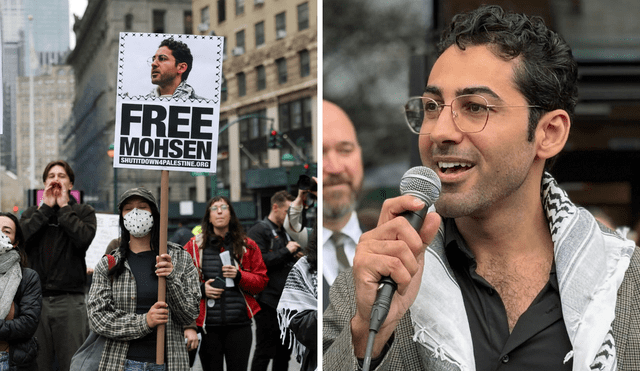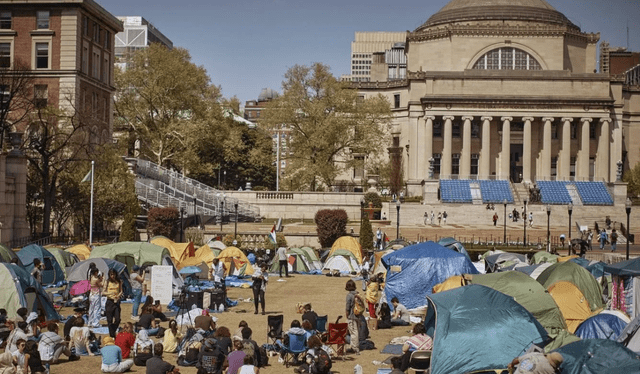US immigration: Palestinian Columbia student detained after protests against the Gaza war released
Mohsen Mahdawi, a Palestinian student and activist at Columbia University, was released after being detained without criminal charges for his participation in demonstrations in support of Palestine. His case sparked criticism of ideologically motivated immigration policies.

Palestinian student Mohsen Mahdawi was released on April 30 in the United States after being arrested in mid-April for his participation in protests against the war in Gaza at Columbia University. Mahdawi, a legal permanent resident, was detained by Immigration and Customs Enforcement (ICE) during a naturalization appointment in Vermont, in a procedure that did not involve criminal charges. Authorities justified his arrest under an immigration statute that allows deportation for foreign policy reasons.
Upon his release from Saint Albany prison, Mahdawi was greeted by pro-Palestinian supporters with cheers and chants. He spoke to the media with a forceful message: "I will say it loud and clear to the president of the United States and his government: you do not scare me." The student also led chants such as "Free Palestine" and "No Fear," reiterating his commitment to defending human rights and highlighting the international impact of US policies.
Immigration and Nationality Act: a controversial and contested law
Mahdawi's detention was based on Section 212(a)(3)(C) of the Immigration and Nationality Act, which allows the U.S. government to deny entry or initiate deportation proceedings against foreigners deemed detrimental to foreign policy. Unlike other statutes, this one does not require evidence of criminal activity, which has raised concerns among civil rights advocates about its potential use as a tool for political repression.
In Mahdawi's case, the State Department, led by secretary Marco Rubio, argued that his campus activism posed a threat to diplomatic interests in the Middle East. Part of that justification was based on a description of a protest at Columbia as "threatening," although this characterization was later denied by the university itself. The controversy surrounding his detention fueled debate about the use of immigration laws for ideological purposes and about the freedom of expression of foreign students.

People protested the case of Mohsen Mahdawi and demanded his release at the Palestinian man's trial. Photo:NBC4
The Mahdawi case: reactions and consequences
Mahdawi's release was celebrated by activists and human rights organizations, who denounced the political nature of his arrest. Many criticized the use of immigration laws to silence dissenting voices in university settings. For his supporters, the case reflects an attempt to criminalize solidarity with Palestine, particularly at a time of heightened international tensions.
Mahdawi, for his part, reiterated his commitment to social justice and stated that his case is just one example of how US government decisions can have global repercussions. Meanwhile, his legal defense continues to warn about the possible use of this same law against other foreign activists, underscoring the need to review its application in democratic contexts.













